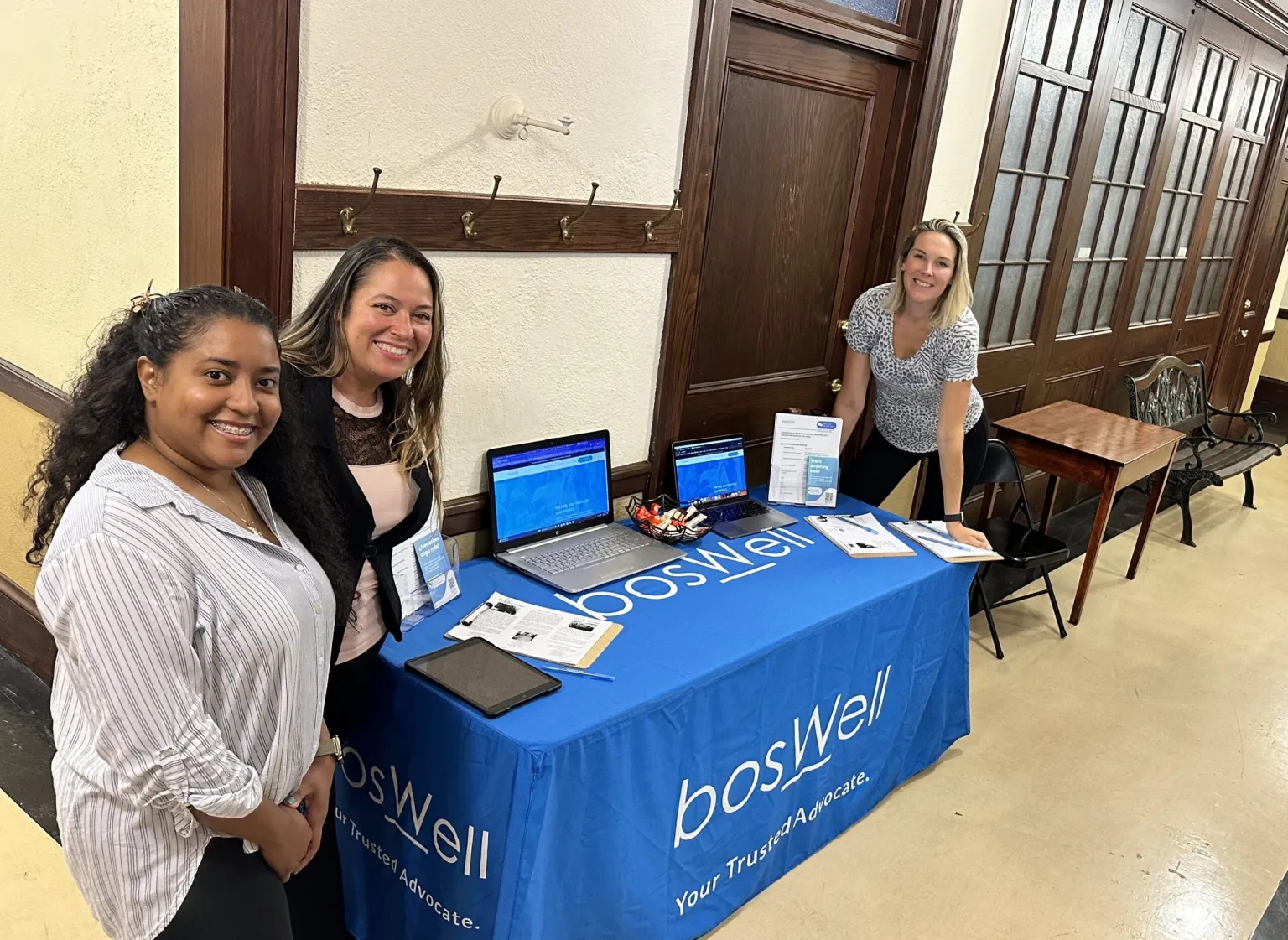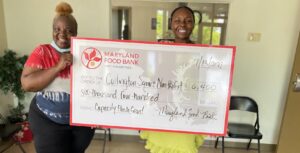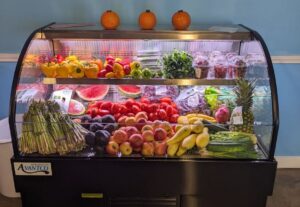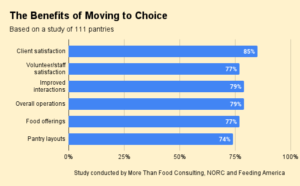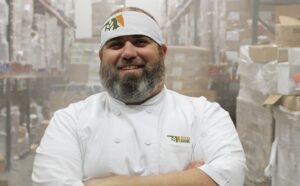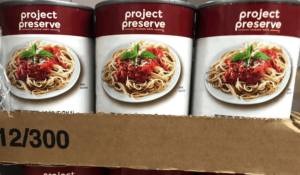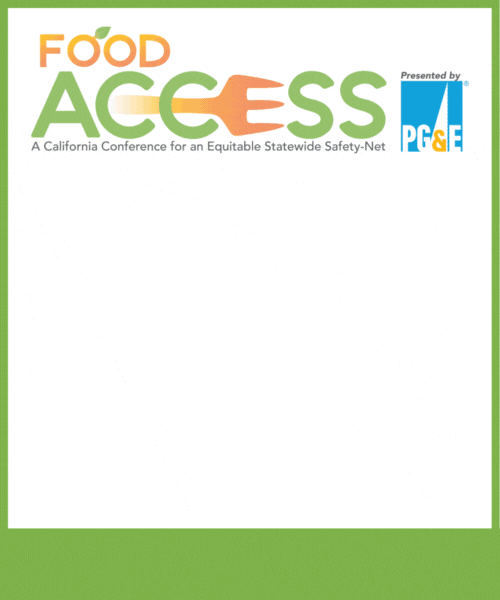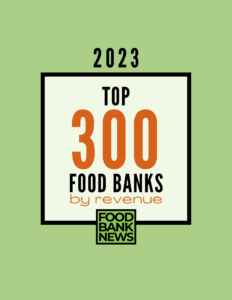It was a Friday afternoon in late summer when Bryan Wang, the CEO of bosWell Inc., knocked on the door of Better Lives Rhode Island, a Providence-based community organization that supports a food pantry, community meals, and homeless outreach.
Wang was cold-calling, trying to find an organization with plenty of food-pantry clients that would be interested in taking advantage of bosWell’s framework for connecting clients to additional social services beyond food. Paula Hudson, Executive Director of Better Lives RI, was interested.
Now, bosWell places two of its “advocates,” similar to community-health workers, at food distributions hosted three days a week by Better Lives RI. “They set up just outside our door in the hallway,” Hudson said. “They engage people. They’ve helped a lot of people with getting signed up with Medicaid, getting health insurance. They’ve done some eviction prevention, they’ve gotten people rental assistance. They’re doing a great job.”
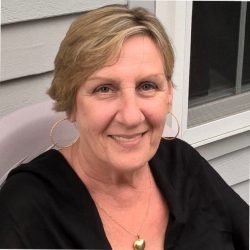
For Better Lives RI, having bosWell on board lets the organization better serve its clients without having to add any additional resources. The bosWell community-health advocates – there are usually two, with one being bilingual – integrate easily with the workflow and operations of the pantry. “It’s a very seamless transition,” Hudson said. “They come in and do their thing, and it just flows together.”
For bosWell, partnering with Better Lives RI helps it connect vulnerable community members with social services that are available to them as insurance benefits under Rhode Island’s Medicaid plan. In 2022, services from community health workers were authorized as covered benefits under the state’s Medicaid State Plan Amendment, Wang noted.
bosWell would like to see more people take advantage of these covered benefits, and it is turning to food pantries to make it happen. “One of the best locations to really meet Medicaid members who need help is food pantries,” Wang said.
Eighty percent of the 2,500 to 3,500 people who show up every month to Better Lives RI’s food distributions, for example, are Medicaid members. Because food insecurity is known to be a leading indicator for other challenges people may be facing, being at the pantry lets bosWell meet and help people “before they further spiral,” Wang said.
Wang, whose family relied on food stamps upon immigrating here from China, has a background in using technology to make healthcare more accessible. Working at a large hospital system in Salt Lake City, he could see that environmental factors like access to food and housing had an outsized impact on clinical outcomes. By tapping into bosWell’s advocates, he said, he hopes food pantries can act “as a place for Medicare members to convene and get help with any additional types of needs that they might need help with.”
bosWell did not always plan to physically place advocates in food pantries. Its initial strategy (as Food Bank News wrote about here) was to provide pantries with free software so they could identify clients who were in need of additional social services beyond food, and notify area healthcare providers.
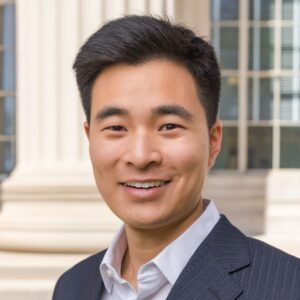
In a perfect world, healthcare providers and plans would have ample bandwidth to reach out and support vulnerable community members before they became high-cost utilizers of emergency services. “But that just wasn’t happening,” Wang said. “So we pivoted to more of a service-oriented model where we’ve actually built up our own team.”
bosWell’s community-health advocates spend an average of two hours a week with each client, a high-touch model that includes connections via text messaging, phone calls and telehealth. So far, bosWell has directly served more than 500 Medicaid families, Wang said, hooking them up with various social services through its team of community-health advocates.
bosWell receives payments directly from Rhode Island’s state Medicaid agency for the work its community-health advocates do in coordinating clients’ social and healthcare services. Its ultimate goal is to help larger food pantries that already offer social services beyond food to also get paid by the state insurer in the same way bosWell currently does. “We would be the happiest team in the world if we can enable existing pantries to continue doing what they’re already doing, but help them get paid for this,” Wang said.
In general, bosWell is interested in getting insurance funding flowing from the healthcare side toward social services. “For a food pantry that’s already understaffed, they’re aware of these Medicaid dollars floating around, but it’s really difficult for them to actually tap into it, given all the red tape you need to cut through,” Wang said. “As long as a pantry can use our software to document and prove the work that they’re doing for the benefit of Medicaid members, then we can get them the funding.”
bosWell now has partnerships with 11 pantries all around Rhode Island and it is trying to determine where to expand next, given that there are 14 other states that have reimbursement programs similar to Rhode Island’s.
Better Lives RI, for its part, does not have any immediate plans to gain revenue through its involvement with bosWell. But it is grateful for bosWell’s seamless help in improving the lives of its clients. “I feel absolutely blessed that Bryan stumbled upon us,” Hudson said. – Chris Costanzo
CAPTION FOR PHOTO, TOP: Community-health advocates from bosWell at a recent food distribution at Better Lives Rhode Island.
Like what you’re reading?
Support Food Bank News
This article was made possible by the readers who support Food Bank News, a national, editorially independent, nonprofit media organization. Food Bank News is not funded by any government agencies, nor is it part of a larger association or corporation. Your support helps ensure our continued solutions-oriented coverage of best practices in hunger relief. Thank you!
Connect with Us:
